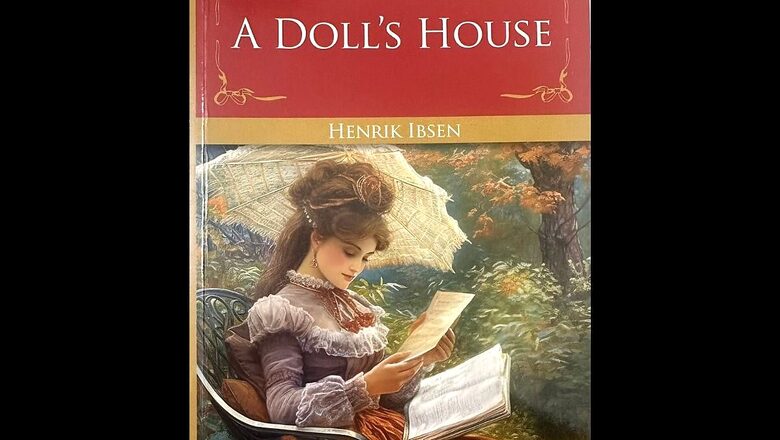
views
A Doll’s House by Henrik Ibsen was written in 19th-Century Victorian era. A story about heteronormative marriage, it stands as a critique of traditional gender norms. Now considered classic feminist literature, it highlights the oppressive expectations placed on women to conform to submissive roles within marriage wherein the men assert dominance. The play’s themes stand the test of time, pioneering values of freedom and personal expression.
The play revolves around a seemingly picture-perfect family. Nora is the ideal housewife — obedient, naive, and always dressed pretty. Torvald, too, on the surface is a loving husband who enjoys calling his wife nicknames and teasing her about how frivolous she is with money. But, as the story progresses, we see through the illusion of their happy marriage and their facades.
Nora’s darkest secret being that she had lied and forged her father’s signature to loan some money when Torvald was sick. As this secret slowly comes to light, Nora is struck with a realisation of who she is and what she truly wants in life.
One thing Ibsen employs perfectly is complex characterisation. Nora, while being childish and subservient in the beginning, grows into a strong and assertive woman. I think this metamorphosis is not only deeply relatable but also inspirational to most women. Her husband Torvald is the epitome of a controlling and arrogant man who upholds patriarchy. He treats Nora more like a possession than an equal, underscoring the play’s critique of gender dynamics.
“To be a woman is to perform” is a quote that perfectly encapsulates the themes of A Doll’s House. Nora is constantly performing the role of a good wife and mother that society would approve of. Her rejection of this life, in the end, serves as an important reminder that women have ownership over their decisions.
This is increasingly relevant due to the new ‘trad wife’ trend, wherein female creators like Nara Smith are seen fully dolled up with a face full of makeup, cooking and taking care of their kids. This trend, which promotes traditional homemaking and gender roles, parallels Nora’s life in the 1800s as a housewife. Reading a book like A Doll’s House will help one question how fulfilling and authentic a life like this can truly be as it upholds personal growth and self-realisation beyond socially prescribed roles.
While controversial and scandalous upon its initial release, it has made a profound influence on feminist ideologies and discussions about gender equality and autonomy. Nora’s journey is a stunning representation of the very human and universal experience of finding oneself.
A Doll’s House will continue to resonate and be significant for decades to come and is an excellent book to binge due to its short length and fast pace storyline. Other than being perfect for feminist literature enthusiasts, it is also ideal for someone trying to get into reading plays. Unlike other old plays, Ibsen’s writing is both easy to follow and extremely engaging. I would recommend this to not only women but to any young adult who is still understanding their identity. Moreover, I would urge men to read this book to gain a better understanding of power dynamics and gender roles in relationships.
Rishika Kumar is a Class 11 student of Dhirubhai Ambani International School. She is a voracious reader of varied genres and has a penchant for writing.
Catch the latest developments on Bangladesh Unrest with our live blog.



















Comments
0 comment